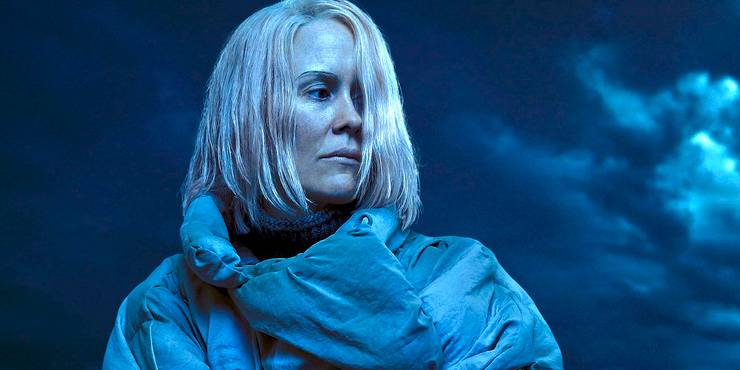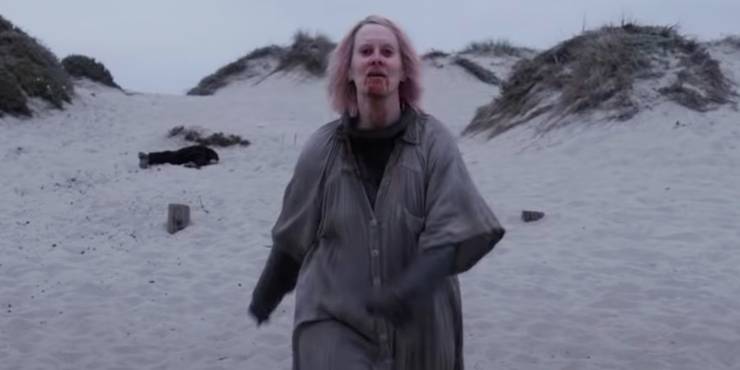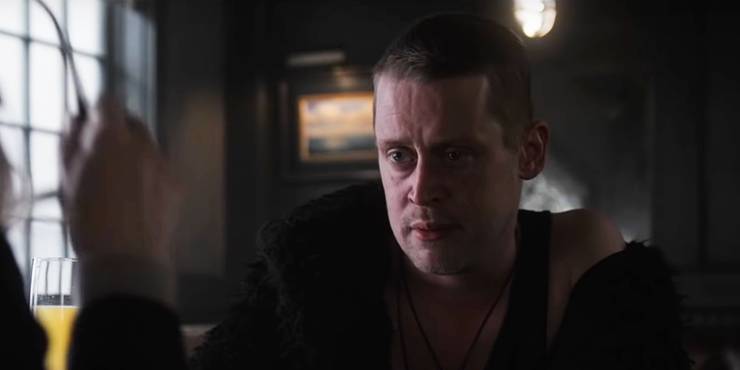American Horror Story season 11 will need to improve on the divisive Double Feature, but fortunately, the anthology series will find it easy to avoid the many mistakes made by its predecessor. Since the series began in 2011, American Horror Story has always divided both critics and fans. Campy, but also often surprisingly brutal and dark, the horror anthology show has a unique tone that makes some seasons of American Horror Story a huge hit with fans while others are an unfortunate miss.
Sadly, season 10’s ambitious experiment Double Feature, which saw American Horror Story combine aliens and vampires in its first two-part split season story, fell squarely in the latter category. With a viciously bleak tone, two completely unconnected (and unengaging plotlines), and not one, but two abrupt endings, American Horror Story season 10 left many viewers more frustrated than frightened. As such, American Horror Story season 11 will need to avoid the pitfalls that tripped up Double Feature.
Double Feature’s decision to tell two standalone stories instead of one season-long narrative was the biggest problem with the season, and many American Horror Story fans questioned the decision before season 10 even began airing. The choice seemed odd given the existence of American Horror Stories, a spinoff dedicated to telling single-episode standalone anthology stories set in the universe of American Horror Story, Tales From the Crypt-style. With the new show now able to tell one-off stories, American Horror Story season 10 seemed better equipped than ever to focus on one season-length narrative. Instead, Double Feature not only split its story but failed to connect the two plots in terms of theme or characters, leaving viewers with little to care about by the time its climax arrived. An excessively large cast, almost comically bleak tone, and pair of abrupt endings did not help Double Feature either, and season 11 will need to avoid these missteps if American Horror Story season 11 is to redeem the show’s standing.
AHS Season 11 Needs One Story (Not Two)

Red Tide, the story of a vacationing family being torn apart when they discover a secret society of vampires providing addicts with mysterious, lethal pills, could have been a great season of American Horror Story. The first five episodes of the season unfurled at a languid pace and introduced a large cast of both villainous vampires (some surprisingly sympathetic) and human victims (some surprisingly cruel). The gradual moral dissolution of Finn Wittrock’s Harry Gardner was a campy delight to behold, while an eclectic ensemble cast including Macaulay Culkin and Billie Lourd kept the potentially still story engaging throughout. However, just as American Horror Story viewers were beginning to get invested in Tuberculosis Karen, Sarah Paulson’s tragic anti-heroine, the season ended with an abrupt and brutal early finale to make way for Double Feature’s second half, Death Valley.
A lot of Death Valley didn’t work for American Horror Story fans, but more than anything, it was the fact neither story felt finished that irked viewers most. Satirizing US presidents like Kennedy and Eisenhower in its decades-spanning story of alien invasions was an ambitious idea, but Death Valley floundered with only a few short episodes to set up its dense lore. By the time American Horror Story had provided context for its aliens and given viewers a chance to decide whether the human characters or the invaders were the true villains, Death Valley’s equally abrupt climax occurred, and season 10 was already over. While Red Tide was a stronger standalone story, Death Valley could also have had the potential to be a solid season of American Horror Story, whereas neither plot deserved to be hurriedly shelved after only five episodes.
AHS Season 11 Needs A Lighter Tone

American Horror Story does not need to be upbeat, and the series has often flourished when exploring seriously dark, disturbing territory. That said, there is a world of difference between the tragic, elegiac brutality of Midnight Mass’ Stephen-King-inspired vampire horror and the sudden shock of Red Tide’s out-of-nowhere ending. The latter was technically bleaker, as Red Tide’s vampires were presumably running rampant where Midnight Mass’ bloodsuckers are contained by a moving mass sacrifice. However, the Netflix hit gives it cast room to breathe and ruminates on the tragedy of its ending, where Red Tide’s mile-a-minute pace meant the attempt at a vicious ending feels more over-the-top and almost comedic than surprising. As a campier horror anthology, American Horror Story had often excelled when it leaned into dark humor.
The endings of season 7, Cult, and season 9, 1984, both saw American Horror Story go for goofier twists, but both worked because viewers enjoy the larger-than-life style of the series. The utter hopelessness on display in Double Feature didn’t fit the campy tone of earlier episodes, and the season was too jumpy to recapture the poignancy of season 4’s Freak Show. American Horror Story season 11 should, as such, opt for a lighter tone without as many depressing digressions such as the suicide of Tuberculosis Karen, since these sort of moments force the series to take itself seriously when goofy horror is what Double Feature should have aimed indulged in.
AHS Season 11 Needs A Smaller Cast

This has been a recurring issue for American Horror Story and is one that persists throughout the series but was particularly galling in Double Feature. The sheer size of American Horror Story‘s sprawling ensemble casts means each season of the show has too many characters to care about and inevitably ends up selling some promising characters short as a result. Many of American Horror Story’s scariest villains are human, and the series has featured some unforgettable performances in every season. Macaulay Culkin’s Mickey stood out in Red Tide, while Leslie Grossman’s Calico served as the MVP of Death Valley, but neither got the spotlight that their effective turns deserved thanks to the sheer size of Double Feature’s cast list. While season 10’s two-story split exasperated this issue, it has recurred throughout the existence of American Horror Story, and season 11 needs to tighten its focus to a smaller, more contained cast to give each star a chance to shine.
About The Author




